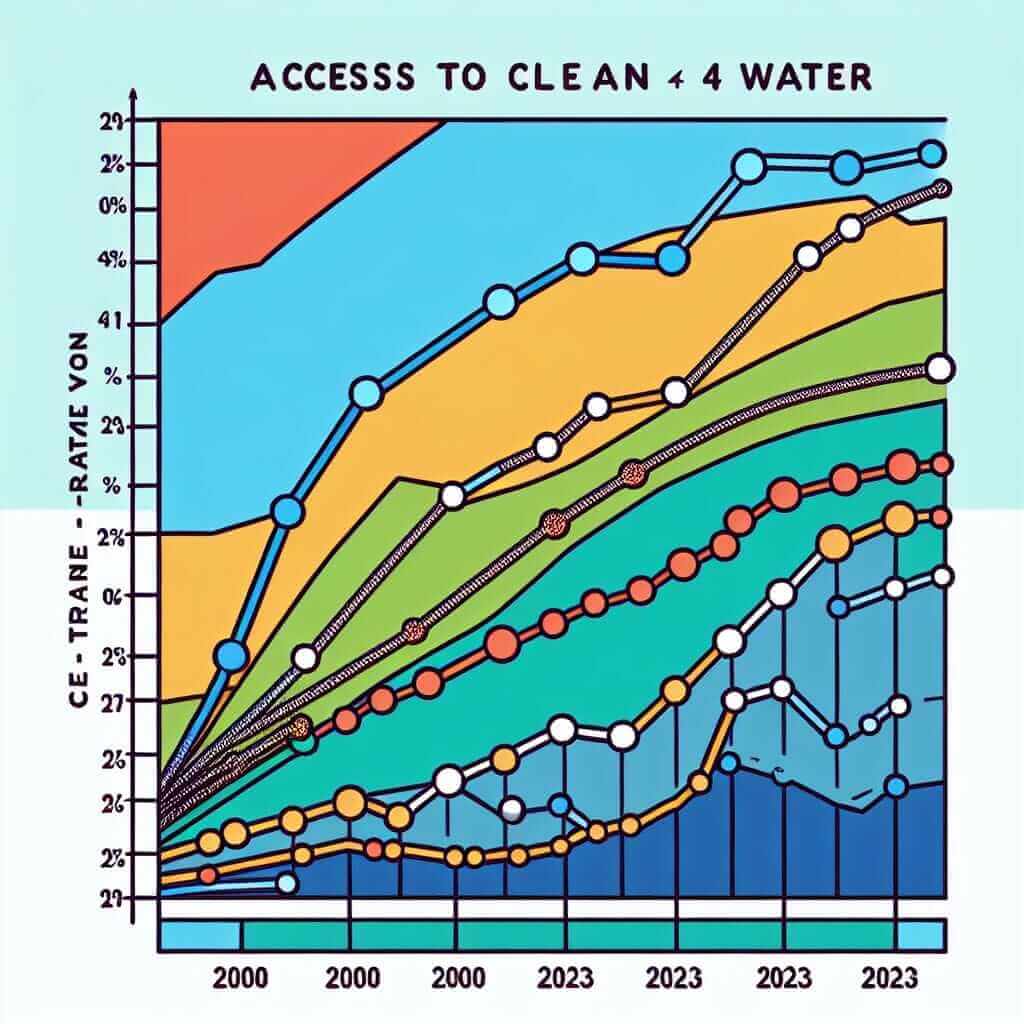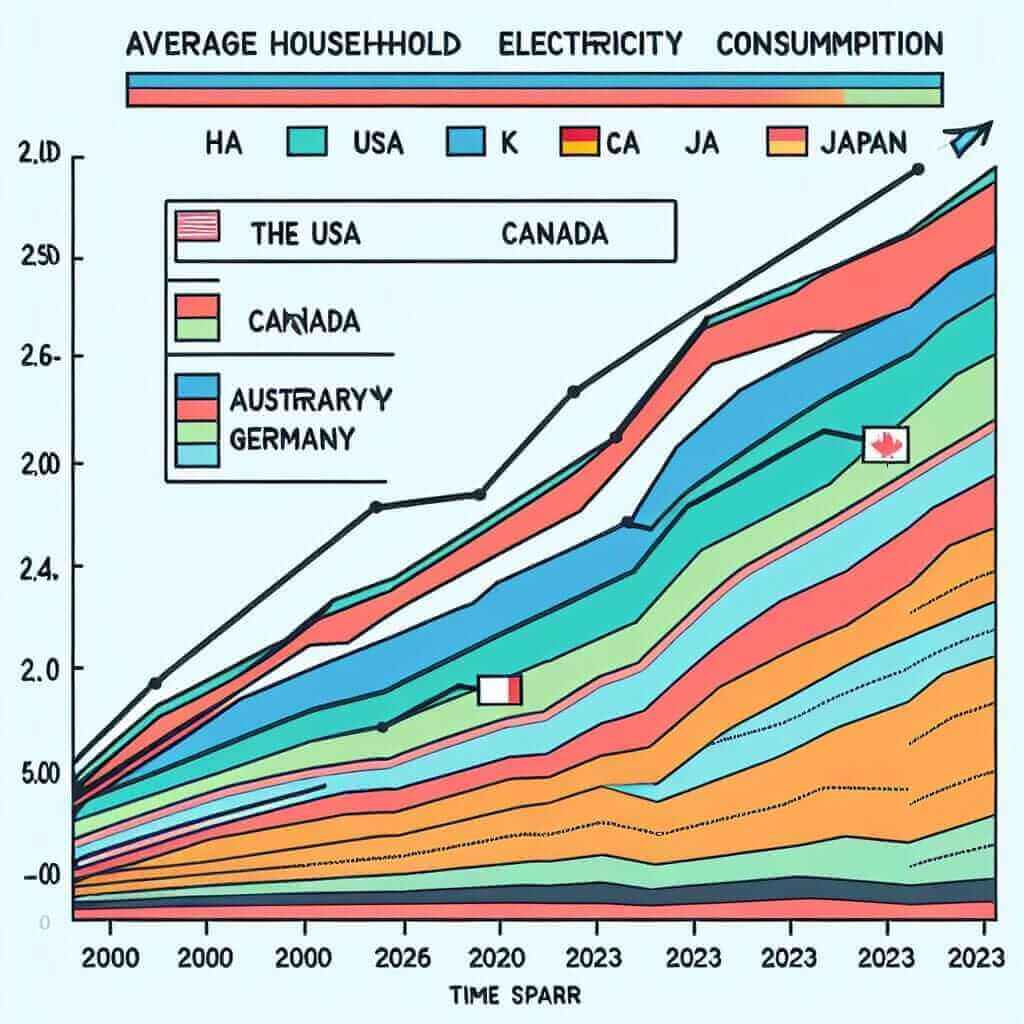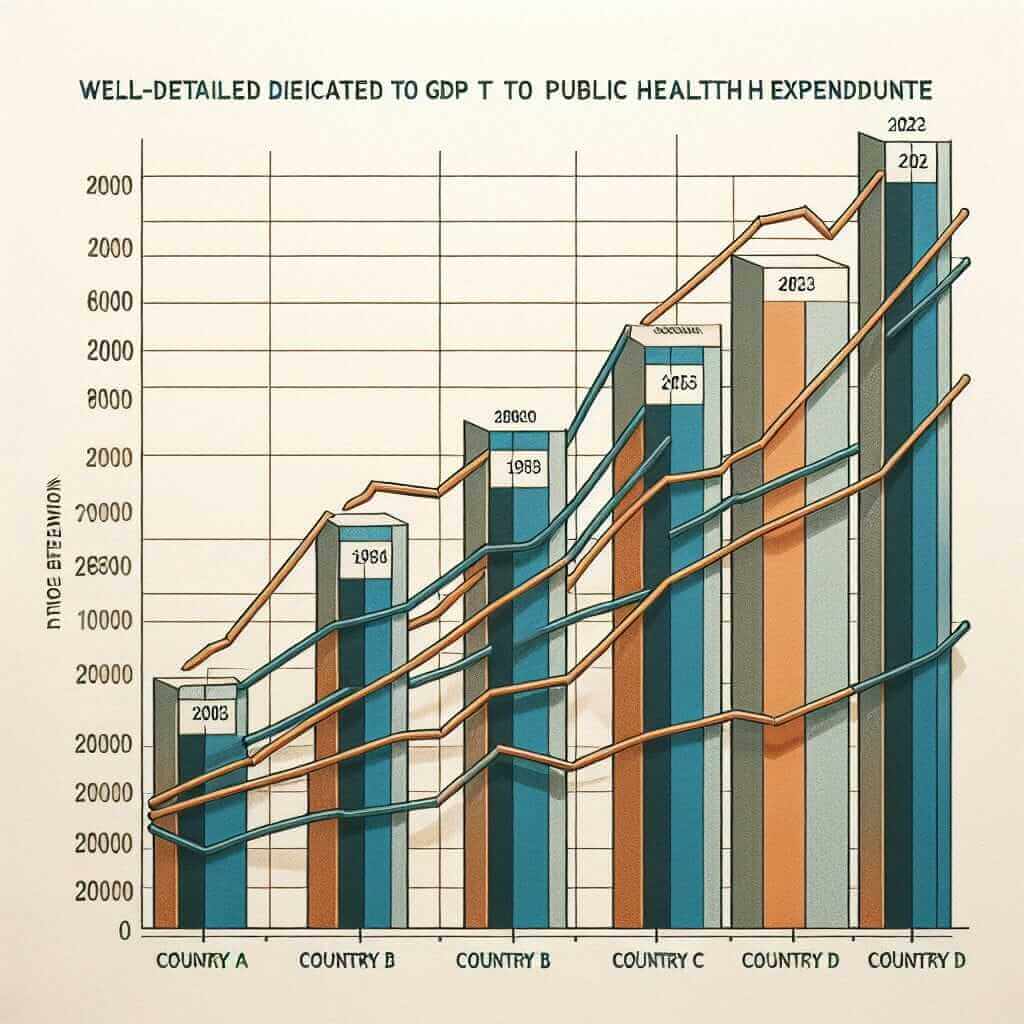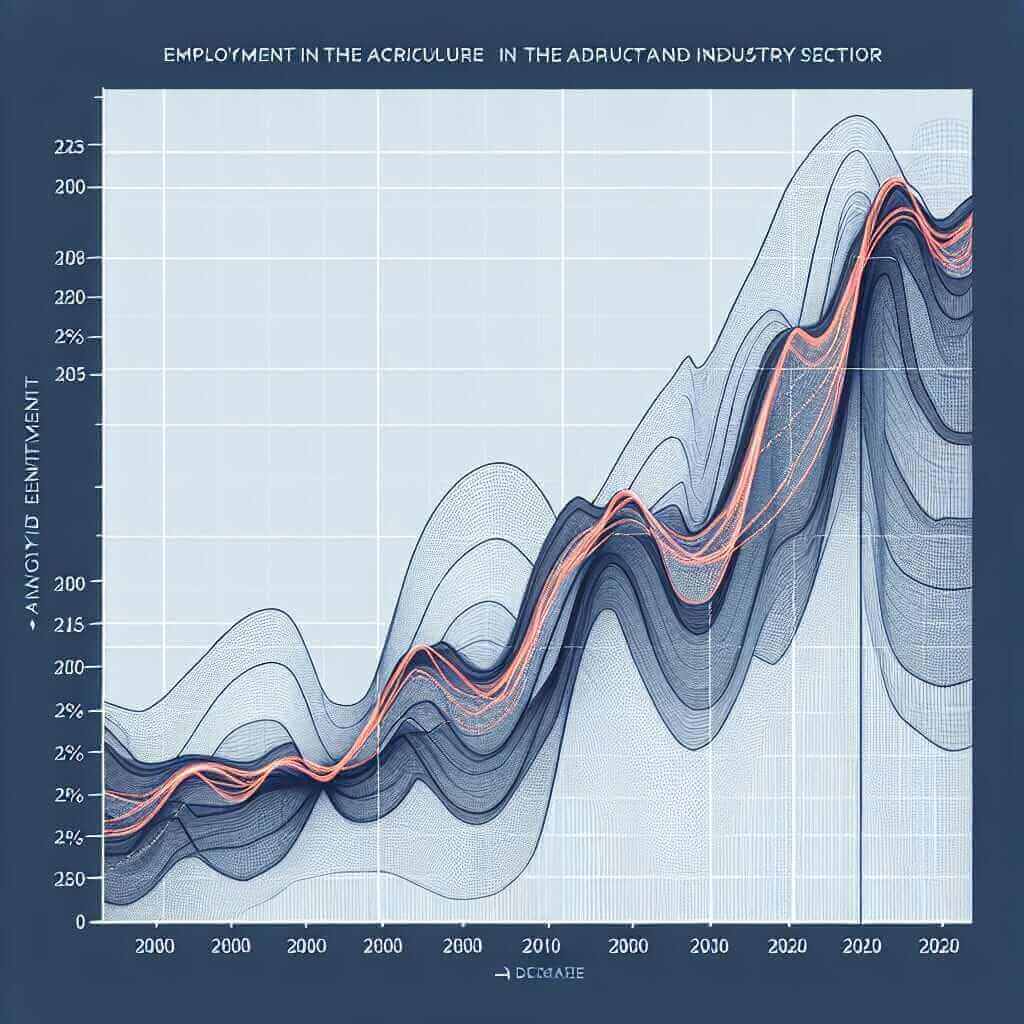Access to clean water is an essential human right and a fundamental necessity for life. Over the years, different regions around the world have experienced varying levels of access to clean water. In this writing lesson, we’ll analyze, compare, and describe the changes in access to clean water in different regions from 2000 to 2023. This practice will hone your skills for the IELTS writing task 1 and ensure you’re well-prepared for the examination.
Common IELTS Task 1 Writing Prompts
Analyzing past IELTS exams, we find that comparisons of public amenities, including access to clean water, are frequent topics. Here are three sample prompts related to our topic:
- The graph below shows the proportion of the population with access to clean water in different regions between 2000 and 2023.
- The table illustrates the changes in access to clean water across various regions from 2000 to 2023.
- The chart compares the percentage of people with access to clean water in different regions over a 23-year period from 2000 to 2023.
Sample Writing Task: The Graph of Clean Water Access
Graph Data
To create vivid visual aids resembling actual test materials, let’s consider the following graph data:
| Year | Region 1 | Region 2 | Region 3 | Region 4 |
|---|---|---|---|---|
| 2000 | 45% | 72% | 38% | 80% |
| 2005 | 50% | 75% | 45% | 82% |
| 2010 | 60% | 78% | 55% | 85% |
| 2015 | 70% | 80% | 65% | 87% |
| 2020 | 75% | 82% | 70% | 90% |
| 2023 | 80% | 85% | 75% | 92% |
 Clean Water Access by Region
Clean Water Access by Region
Analyzing the Prompt
The prompt asks us to summarize and compare the proportions of populations having access to clean water across four regions over a span of 23 years. Notice that the primary task is to describe the changes accurately and make comparisons between the regions.
Sample Writing
The graph illustrates the percentage of the population with access to clean water in four regions from 2000 to 2023. Overall, it is evident that all regions experienced an upward trend in access to clean water over the given period, with Region 4 consistently having the highest access and Region 3 the lowest.
In 2000, Region 4 had the largest proportion of its population with clean water access at 80%, significantly higher compared to Regions 1 and 3, where the percentages were 45% and 38%, respectively. Region 2 had the second highest access rate at 72%. By 2005, all regions had experienced a moderate increase, with Region 1 reaching 50% access, Region 2 at 75%, Region 3 at 45%, and Region 4 at 82%.
The trend continued upwards for all regions over the next two decades. By 2015, Region 1 had improved to 70%, while Region 2 had a slight increase to 80%. Region 3 saw a significant rise to 65%, and Region 4 maintained its lead at 87%.
In the final year, 2023, the highest access was in Region 4, with 92%, followed by Region 2 at 85%. Region 1 and Region 3 showed significant improvements, reaching 80% and 75%, respectively.
In conclusion, the period from 2000 to 2023 witnessed substantial progress in the availability of clean water across all four regions, with Region 4 consistently remaining at the top.
Word count: 238
Key Points to Remember
When tackling a task like this, keep the following in mind:
- Data Organization: Clearly present the trends and compare key data points across different years and regions.
- Vocabulary: Use comparative language effectively. For instance:
- Significantly higher/lower
- Moderate increase
- Substantial improvement
- Upward trend
- Grammar: Be cautious with tenses. Using the past tense to describe what happened over a period (e.g., “had improved,” “showed a rise”) is crucial.
- Structure: Begin with an overview, then provide detailed comparisons and trends, and end with a brief conclusion.
Vocabulary Highlights
Here are some words and phrases from the sample response:
- Proportion (noun /prəˈpɔː.ʃən/): The number or amount of a group or part of something when compared to the whole.
- Trend (noun /trend/): The general course or direction in which something tends to move.
- Moderate (adjective /ˈmɒd.ər.ət/): Average in amount, intensity, quality, or degree.
- Substantial (adjective /səbˈstæn.ʃəl/): Of considerable importance, size, or worth.
- Consistently (adverb /kənˈsɪs.tənt.li/): In every case or on every occasion; invariably.
Conclusion
To effectively tackle IELTS Writing Task 1 prompts like the one discussed, it is essential to practice regularly, focus on improving your data interpretation skills, and enrich your vocabulary. Always aim for clarity and precision in your writing, which are key to achieving a high band score.
Happy writing!


